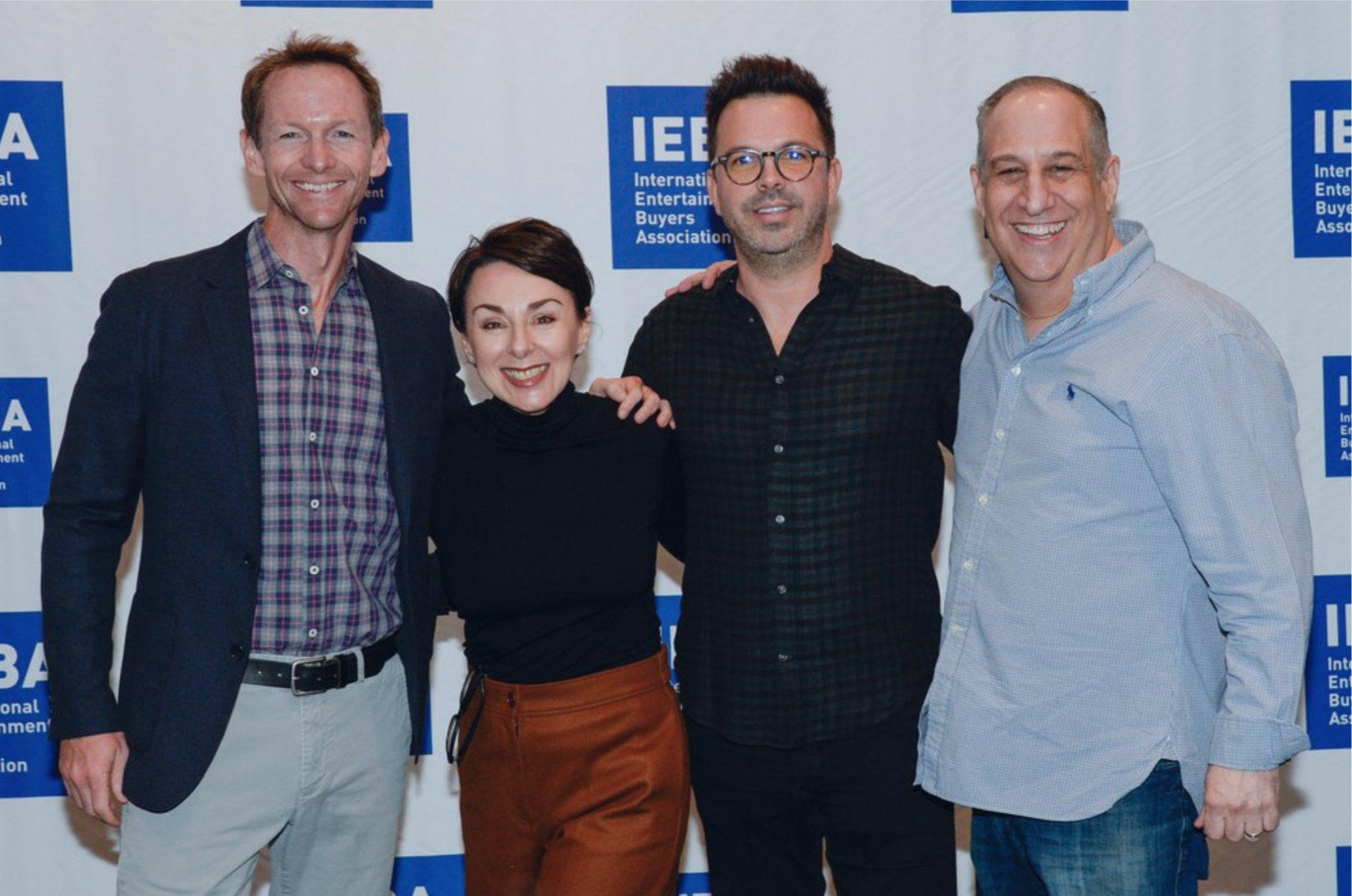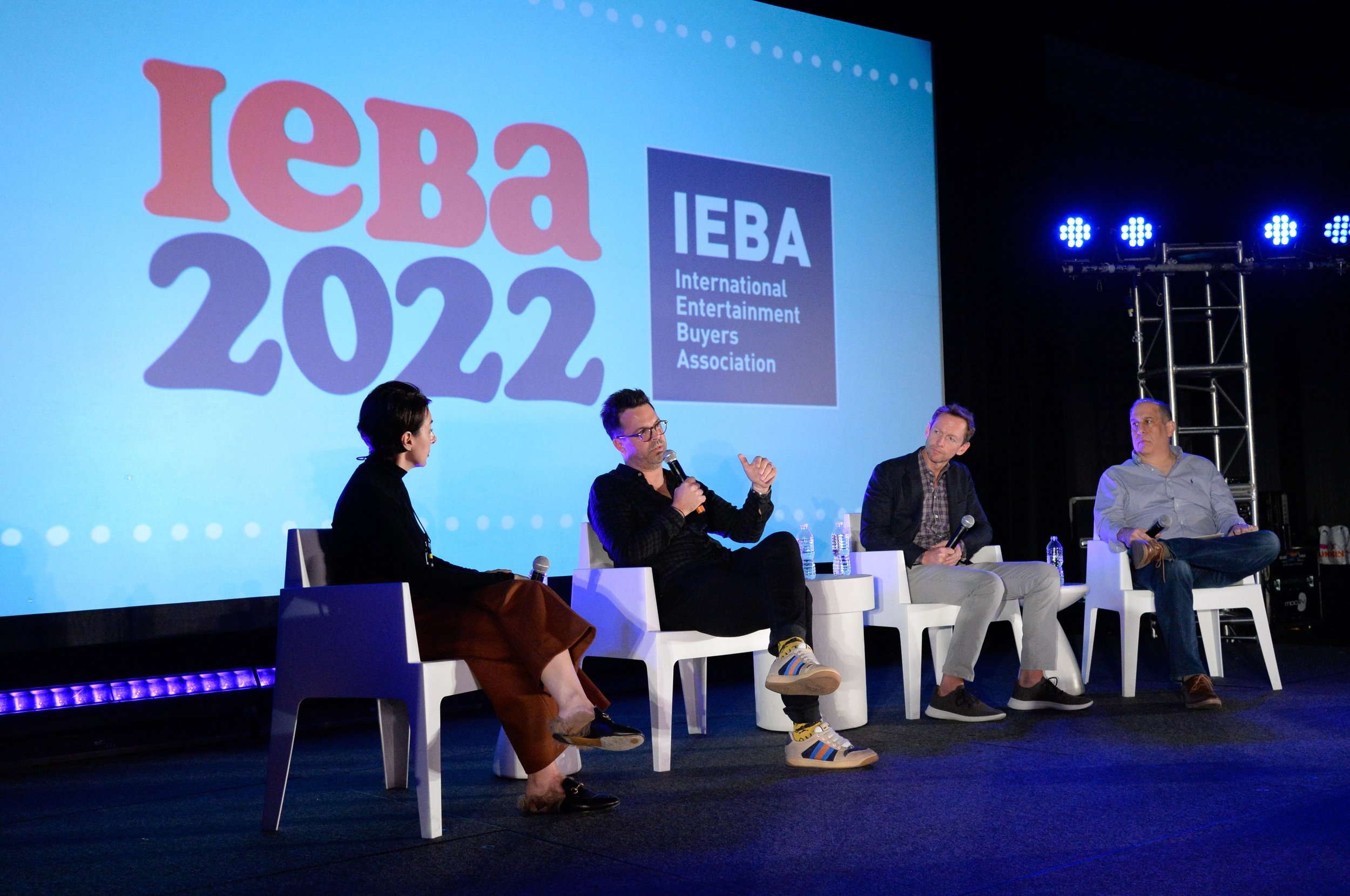Terms & Conditions Power Panel Part 1: Insurance and Employment Practices
Panelists:
Jason Bernstein, AEG Presents
Brent Daughrity, Anderson Benson Insurance
Tim Epstein, Duggan Bertsch, LLC
Moderated by:
Pam Matthews, IEBA
The 2022 installment of Terms & Conditions Power Panel focused on questions submitted in advance by IEBA Members.
Question: What is no longer insurable in 2022 and what is hard to get and expensive?
“COVID is not insurable,” began Brent Daughrity. “But the question is – when will it just become part of illness coverage? On the non-appearance side, we know an artist is covered for death, accident, illness. Any illness. At what point will COVID be illness? I think it's getting there quickly. If a whole event is shut down by municipality or city or state, I think that will stay. But if artist illness is the reason for the non-appearance, you will see that in 4th Quarter or the first part of Q1 next year. Non-appearance/cancellation is hard. Insurance companies lost $8 billion last year. They're still digging out. Look at Lloyds as a marketplace as a whole. Entertainment holds a very small segment within Lloyds – about 5% of the overall business. You will see a massive amount of claims coming out of Ukraine and Russia. You've got the hurricanes. I think last week we had about four cancellations due to weather. But we also had about eleven due to either illness. We're seeing cancellations more than ever this year. I don't know if if can be attributed to just being off the road but you've got this whole millennial generation that is more self-aware about their mental health.”
Jason Bernstein agreed, “So many artists right now – Shawn Mendes, Kanye West, Justin Bieber plus a whole bunch of smaller club and theater acts – they’re just unable to tour. I am wondering is it going to get harder to ensure because of the frequency of the claims?” Matthews added, “Do we have to define what illness is?”
Daughrity answered, “You definitely have to define what that is. I think mental health is a newer issue and I think it's stemming from a very good place. Maybe our generation just toughed through things. You know, deal with it but power through. I think people are more self-aware. My 12-year-old daughter comes downstairs with a skincare mask on her face. They're just more self-aware of taking care of their bodies. It's a good thing. Look at Olivia Rodriguez. I think what they did with her is so great. Because, obviously, she had never toured. Then COVID hit. She could have gone into arenas immediately. Her parents were therapists. They put her in smaller rooms and I think it worked really well to build her up. The stress – it’s a challenge.”
“Festivals are challenging,” Daughrity continued. “Throw in camping. It’s challenging just to get insured and it's expensive. The only way you're getting a camping festival insured is if you have operated it for very long time in a very good way.
“EPL coverage, which is sexual harassment, is challenging now. It covers discrimination and sexual assaults. And wrongful terminations – we saw those with COVID. That market is on fire right now because of the way people were terminated. Maybe it wasn’t done the right way, so we've seen a lot of action. Also in EPL coverage is wage and hour – a piece that is very, very important. I'm seeing these claims on a weekly basis out of California. They've got a court system there that's basically an employee-first court, which is great. But, I feel, they're really abusing the system. For example, a client was in California shooting a music video. A worker was identified as a 1099 worker. They paid him $1,000 - $1,500 a day for three days on this video set. The way they employed him under California law ended up costing the client about $625,000. And they try get as many 1099 workers as they can to turn claims into a class action. It feels like a shakedown.”
“It's a classification issue – employee versus an independent contractor,” Tim Epstein interjected.
Question: Do I need a specific policy regarding romantic relationships in the workplace or is the law clear about workplace relationships?
“You most definitely need EPL insurance,” replied Daughrity.
“First, you should have an employee handbook,” said Epstein. “And that employee handbook should be vetted by counsel to make sure it's appropriate. And you need some type of written agreement with the people working for you. Whether they're a contractor or an employee is something you should get some advice from counsel on. Especially if you're looking at some states, like the People's Republic of California. It's something that you need to be very wary of. The test may not be that the worker wants to be treated as a contractor. There is a way that you can try to accommodate them, but not at the expense of having a state labor board come after you or get you into one of these wage claims. So, the general advice: get that employee handbook, make sure that there is a contract in place with employees, and define working relationships. If you don't want someone to be considered an employee, don't control the means and methods of their work.”
“You want to have insurance to cover these things,” said Daughrity. “It's challenging and EPL is out there. Consult counsel, create a policy guide, and make sure that the policy guide is handed to everyone including contract labor.”
“But be careful on that one,” Epstein advised. “The more rules & regulations you put on a worker, the more likely they will be seen as an employee versus a contractor. You can refer them to certain things. And definitely make sure you understand your rules and regulations. Make sure those are communicated. But you're going to communicate those differently to an employee versus a contractor because that's a different relationship. And you should not have contractors and employees doing the same job. You'll get hammered on that.”
“The best money you will ever spend is on proper counsel,” Daughrity said. “Have your policy guide vetted. You cannot do it on your own. You cannot do it with an online template. Have your counsel review it. I would go a step further – have an expert in what you're doing review it. Attorneys practice all kinds of law, but they may not know about your segment.”
Epstein agreed, “A lot of you operate venues. Your local real estate attorney might be someone who does zoning. You might have a guy who gets your liquor license. Fantastic, let them do that. The local guy is going to be the best. But when you're getting into entertainment issues, you should have an entertainment lawyer. And I know we're in Nashville and I could probably throw a couple rocks and hit a couple dozen lawyers who called themselves entertainment lawyers or music lawyers. But label lawyers are not live event lawyers. Artist lawyers should not be representing promoters. You guys are different people. You're on a different side of the deal. You should not tolerate it, as an industry. Truckers have different lawyers than the trucking company. Airlines have different lawyers than the pilots. Do not tolerate someone representing talent and the buyers of talent. It's shameful. Don't do it. Thank you.”
“And I'm going to go down that road with insurance too,” added Daughrity. “Look, there's a thousand insurance agencies but there's only a handful of entertainment brokers. I ran into Paul Bassman on the way in. He’s a great broker. There are a handful out there. Find an expert and rely on them. It's about it being right. I know the entertainment industry can be last-minute. But please plan ahead. Insurance should not be a last-minute thing. Carriers laid off so much of their staff during COVID. Before, we could all turn around a proposal in 24 hours. Now it's a week or it's two weeks. They're working with a skeleton crew. So, if you're coming to us last minute on anything, I typically decline. That's not enough time for me to work with our underwriters.”
“And just because you have insurance does not mean insurance is going to cover everything,” stated Epstein. “Guess what, insurance companies are in the business of making money. And they're not making money on the stock market right now. So, they're going to be harder on you for claim payout. I'm seeing it right now with event cancellation claims. I'm even seeing it on liability claims. So what do you need to do? Read your policy. Get an expert to read the policy. Have an entertainment broker who understands the policy and has good language with that carrier. So it's not just about getting a policy – it's about having that policy where a broker has negotiated that language ahead of time so it covers things like thrown objects from the stage. Right? Your local State Farm guy may get a policy from the same company but the language is different because they don't have that relationship with the underwriter.”
“ … or they don't know to carve out drumsticks,” added Bernstein.




